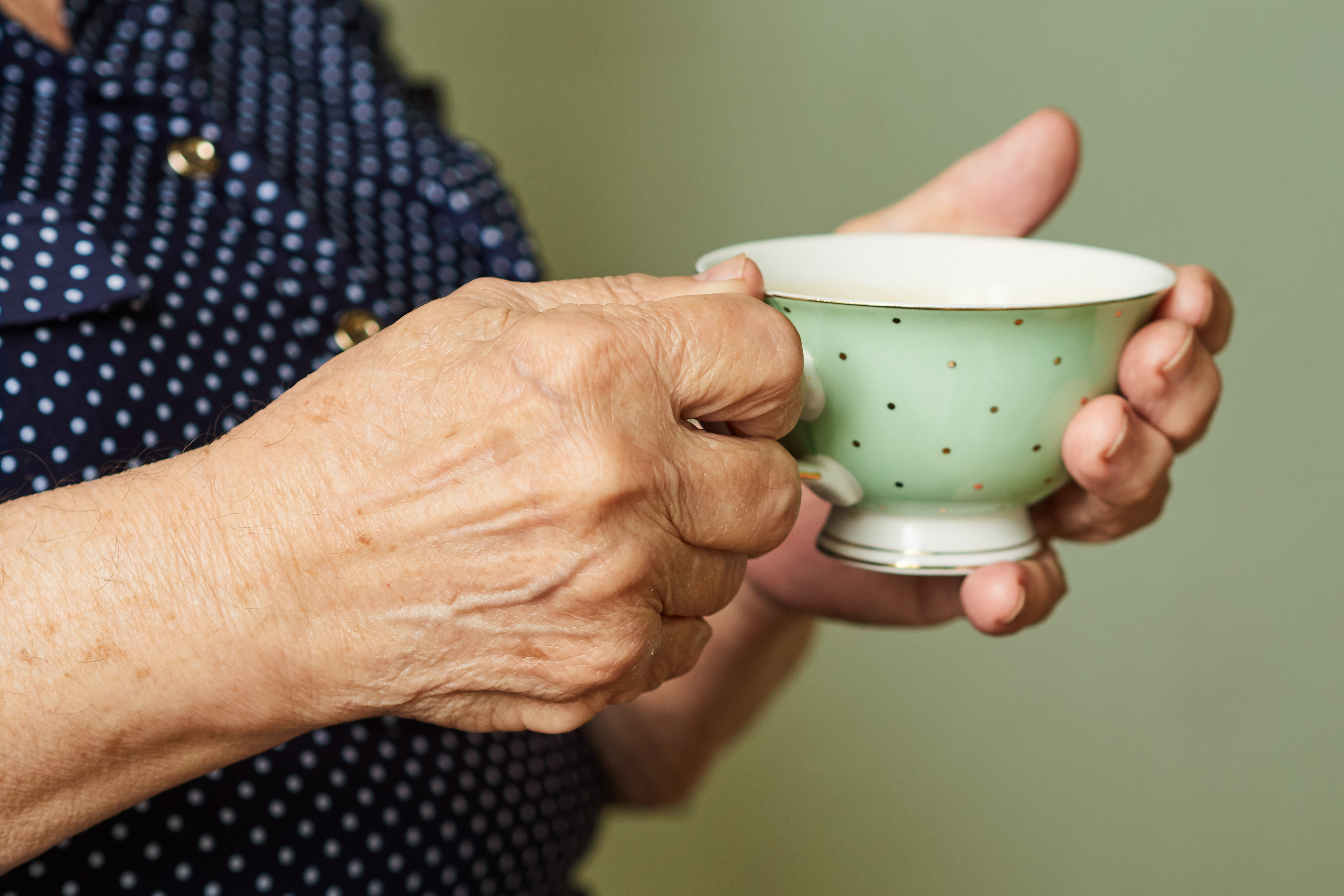A Nice Cup Of Tea
By Sue Hansard, Writer, Poet and Children's Storywriter ,Lymphoedema Specialist Written in memory of Mum, trying to show the difficulties and frustrations that someone who is developing dementia, may experience.

'I have decided that today
I will make myself
a cup of tea.
I have been told not to use
the noisy steaming thing
that sits on the counter.
But I don’t need that.
What I need is the thing that whistles
when it’s ready. If I can find it.
So here I am in this room
with cupboard doors all closed to me.
It is familiar. I think.
Yes, here’s the sink and these that turn... for water.
Oh No! Too fast! My blouse is wet.
I’ll cover it up or I’ll be for it.
Now, where’s the tea caddy, the little spoon,
Mum’s china cup? And why is everything hidden
in this room!
I know I need milk but I can’t find a fridge
and a jug and a traycloth
and a biscuit or two.
You see they think I’ve gone daft, but I want to show
that I haven’t lost everything
I used to know.
So if I can just make myself a nice cup of tea...
somehow…today
they’ll see the old me.'
Read more from Sue..
.jpeg)
Dementia - Finding Mum by Sue Hansard
Lymphoedema Nurse Specialist, Mentor, Educator and Writer at FIRST LYMPH CARE
View all articles from Sue Hansard

Developing dementia can be a challenging and complex experience, both for the person who is affected and for their loved ones. Dementia is a progressive neurodegenerative condition that primarily affects cognitive functions, such as memory, thinking, and behavior. While everyone's experience with dementia can be unique, here are some common aspects:
1. Memory loss: One of the hallmark symptoms of dementia is memory impairment. People with dementia may struggle with remembering recent events, names, and faces. They may also have difficulty organizing and retaining new information.
2. Cognitive decline: Dementia can progressively impact other cognitive abilities, such as attention, reasoning, judgment, and problem-solving skills. These changes can make it challenging to complete familiar tasks or follow complex instructions.
3. Communication difficulties: As dementia progresses, individuals may find it increasingly difficult to express themselves verbally or understand spoken or written language. They may struggle to find words or communicate their thoughts clearly.
4. Emotional changes: Dementia can cause shifts in mood and behaviour. The person may experience increased irritability, agitation, anxiety, or depression. Personality changes can occur, causing shifts in interests, social interactions, and overall demeanour.
5. Decline in independence: As dementia advances, individuals may struggle with self-care activities like dressing, bathing, or cooking. They may require increasing assistance with daily tasks and rely on support from caregivers.
6. Gradual loss of autonomy: Dementia can lead to a loss of independence and decision-making capacity. As the condition progresses, individuals may require help with financial matters, legal decisions, and other aspects of their lives.
It is important to note that dementia can impact individuals differently, and the rate of decline can vary. Additionally, support from healthcare professionals, dementia-specific care services, support groups, and loved ones can help individuals with dementia navigate these changes and maintain quality of life for as long as possible.

